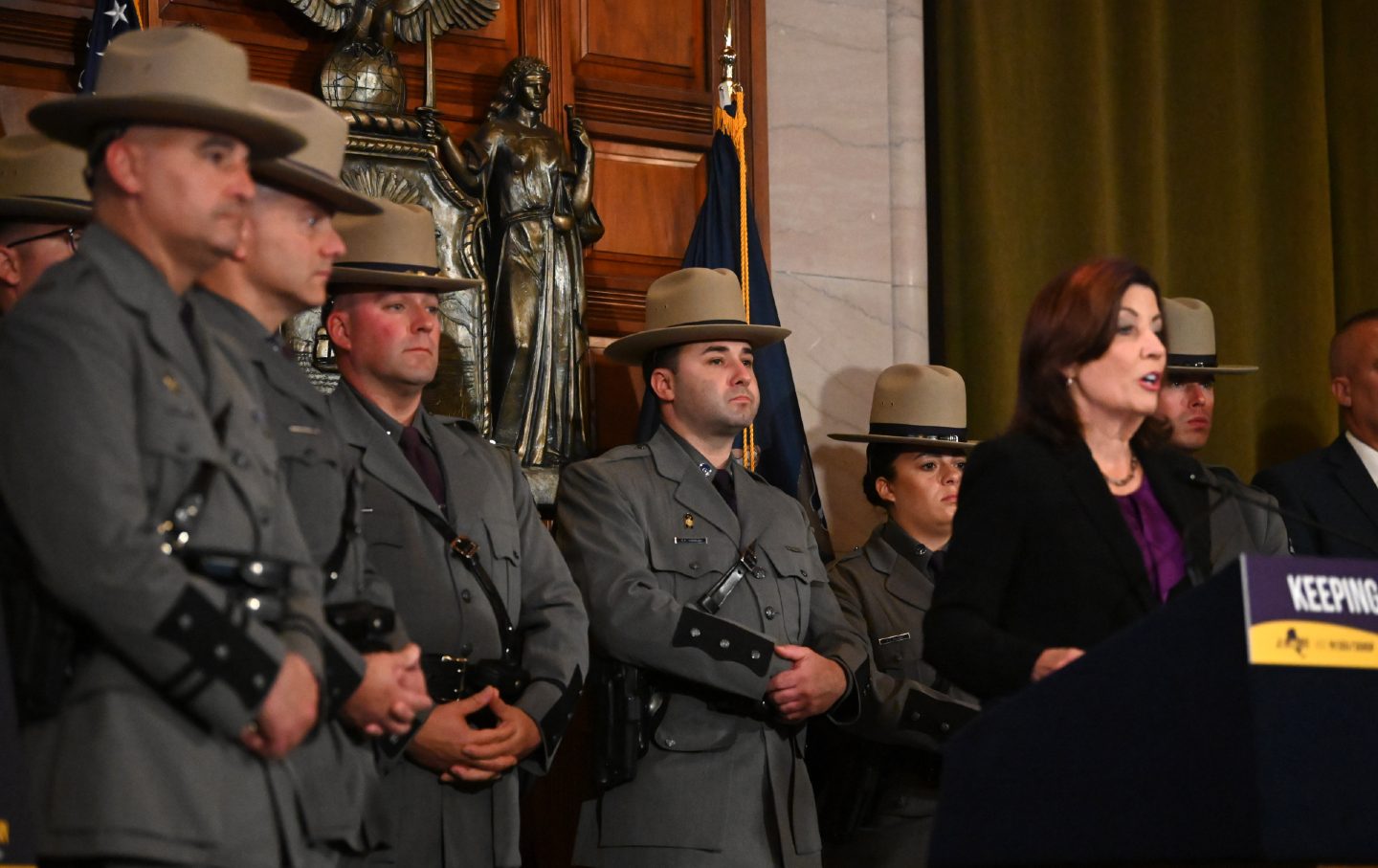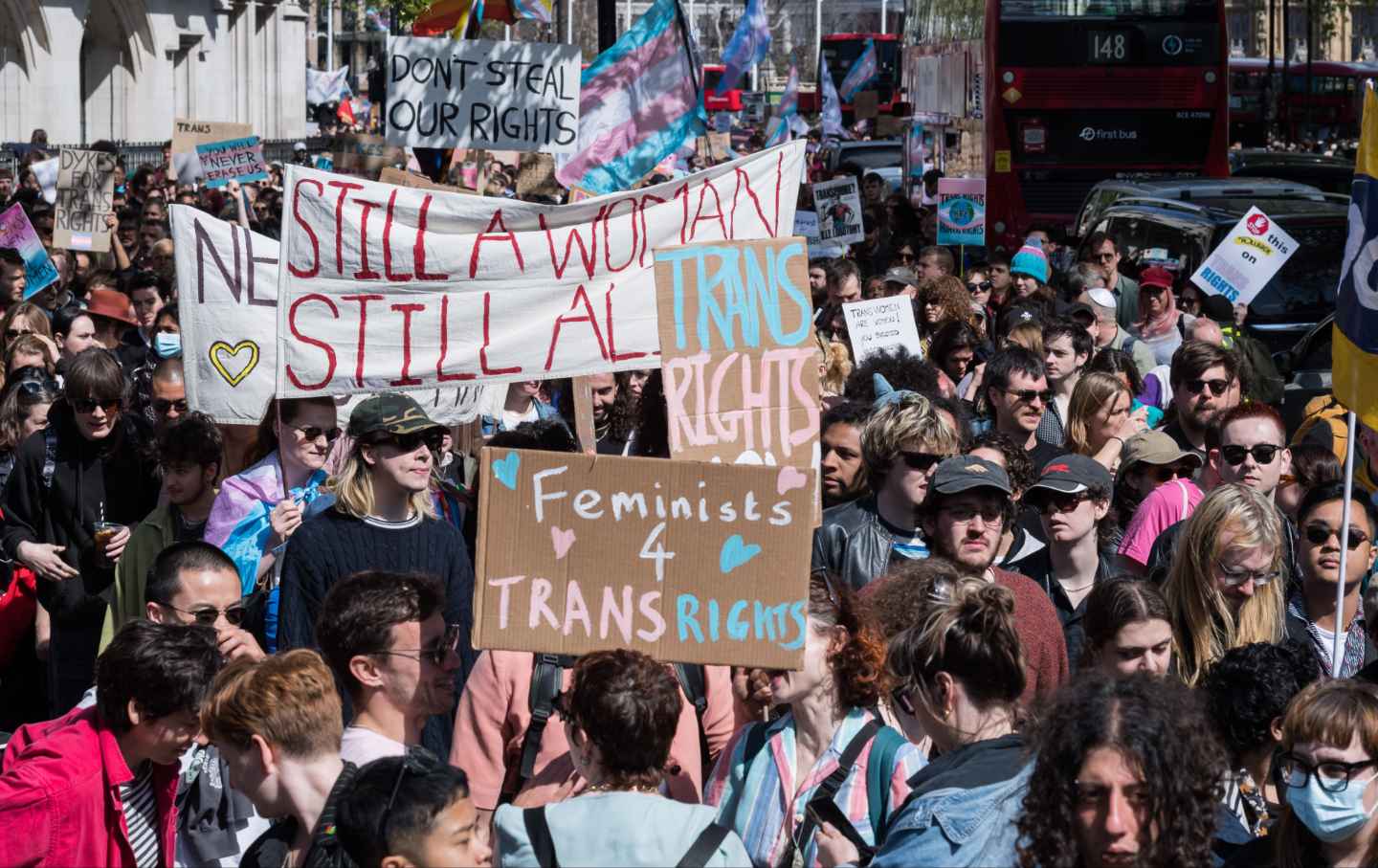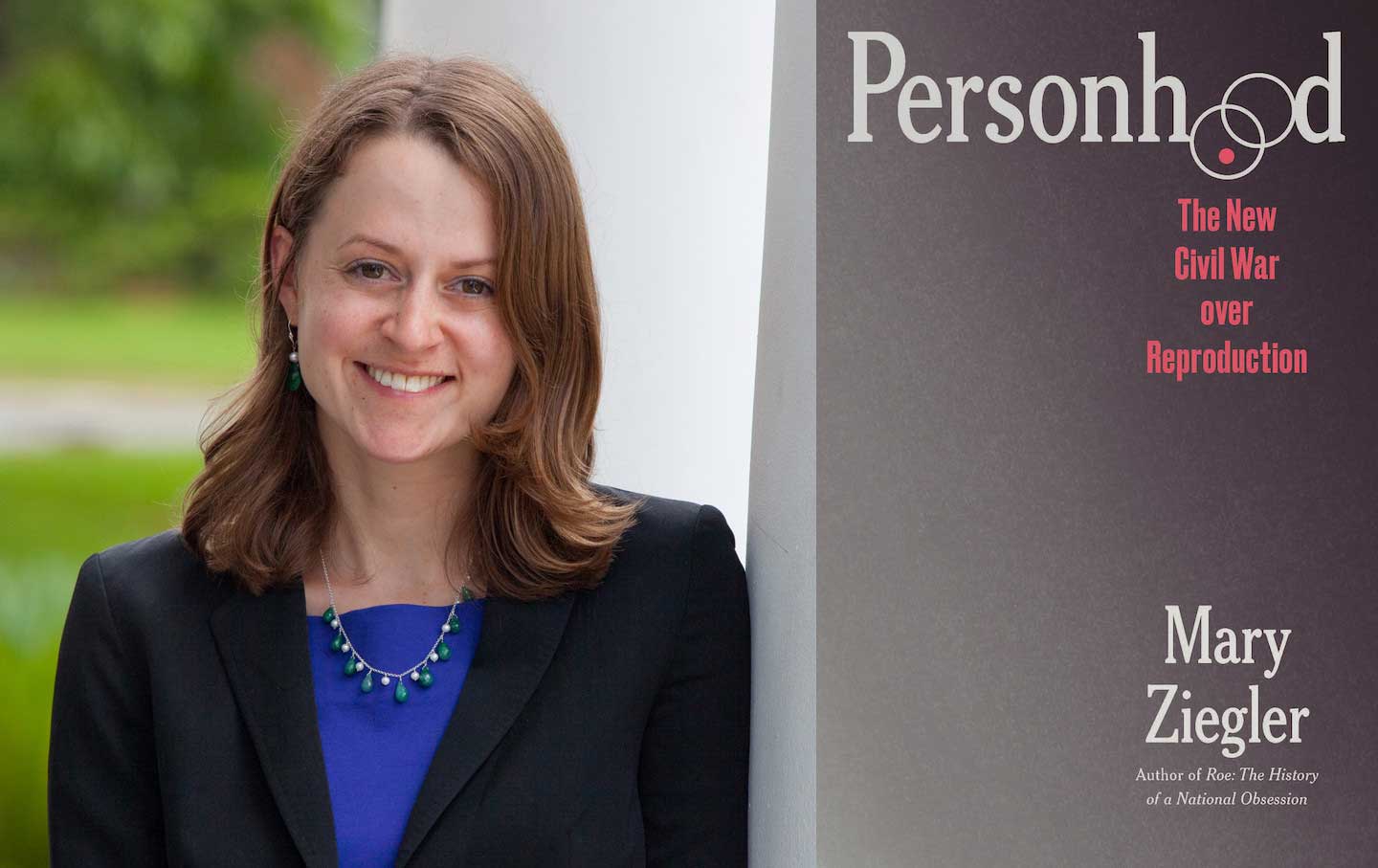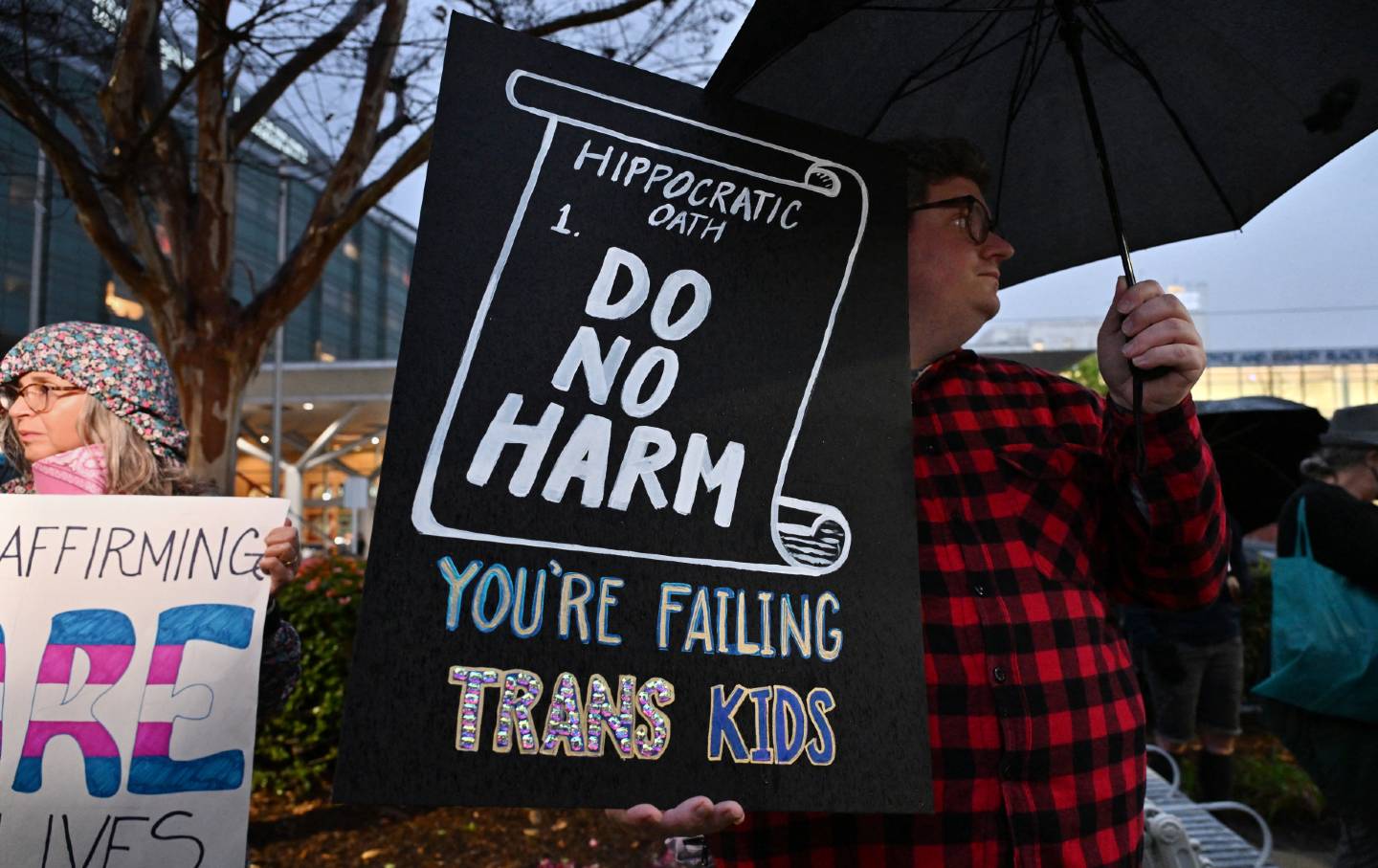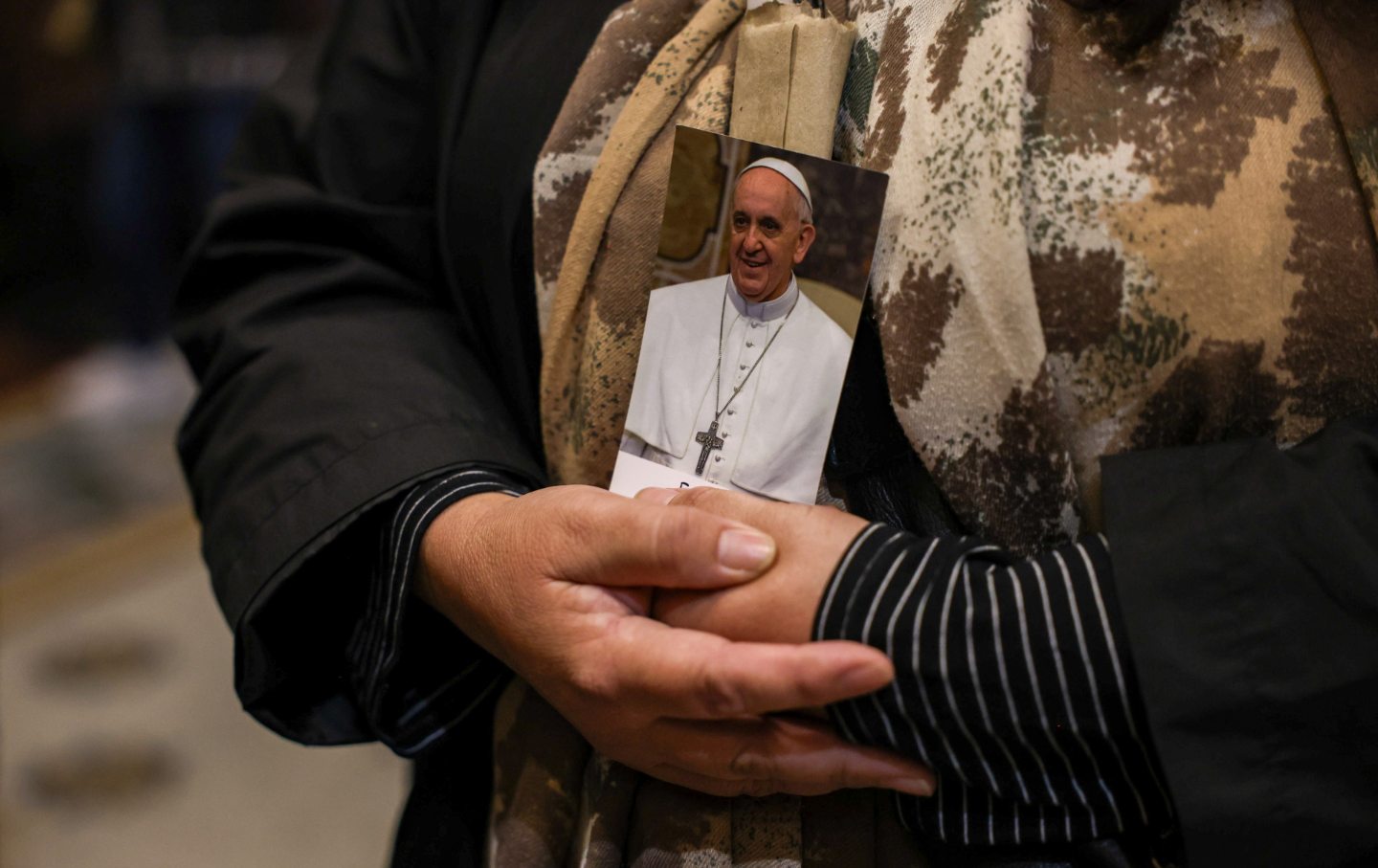Harvey Weinstein’s Reversal of Fortune
Though the movie mogul’s acquittal stunned the New York media, anyone who attended the trial without blinders could have seen it coming.
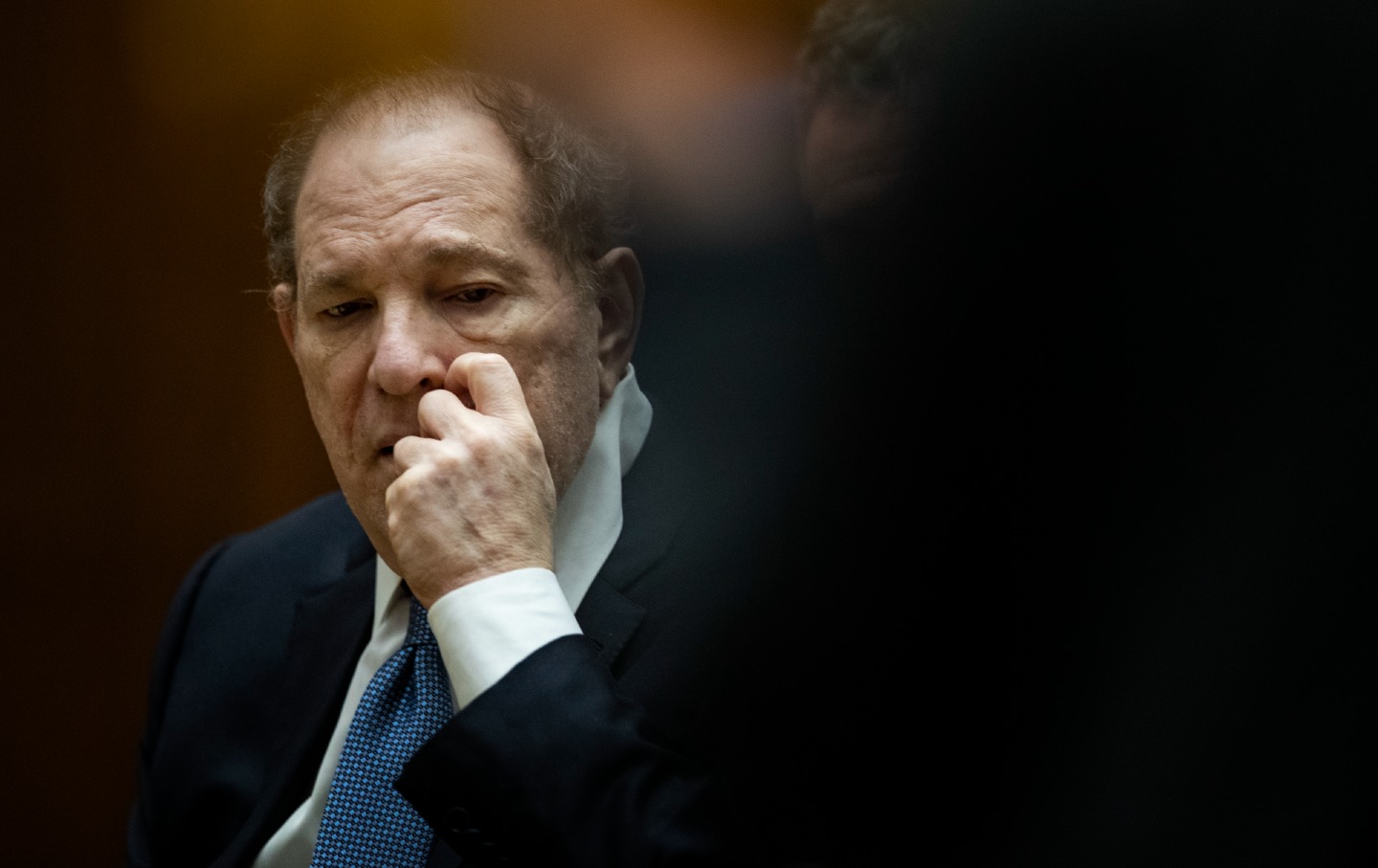
On April 25, the New York Court of Appeals, the state’s highest court, reversed the 2020 rape conviction of Harvey Weinstein. A “stunning decision,” the media blared, “staggering,” “tragic.” Cyrus Vance Jr., the city’s former district attorney, whose office brought the case against #MeToo’s pivotal figure, pronounced himself “shocked.”
Their reaction reflects the walled, self-referential little world of their perception, which had previously colored almost every major story, public comment and prosecution strategy. Had they spent any time dispassionately assessing the performance of (now former) Judge James M. Burke, they might have expected a reversal. Had they spent any time gauging the views of public spectators who sat through the trial, they might now question the wisdom of retrying a case riddled with doubt. As a prominent feminist who observed the testimony of one of the main complainants said to me during a break in the proceedings, “I think we need to start preparing young women for the possibility of an acquittal.”
Weinstein was not acquitted in 2020, but nor did the prosecution get everything it wanted. The verdict had the feel of a compromise. The jury found Weinstein not guilty of the most severe charges, two counts of predatory sexual assault, as well as first-degree rape. It found him guilty of forcibly performing oral sex upon Miriam Haley, and third-degree rape against Jessica Mann. (All women named here identified themselves publicly years ago.) The rape charge carried a sentence of one and a half to four years in prison; the criminal sexual act charge, five to 25 years. Scandal and loathing determined the sentence; Judge Burke was their instrument. He gave the erstwhile Hollywood mogul, a first-time offender under the law, 23 years plus post-release supervision—effectively a life sentence.
For all that, it was always a weak case. The laptop prosecutors in the press largely obscured this. But in 2019, as The New York Times noted later, the DA’s office, recognizing this weakness, sought help from Judge Burke to “bolster” it. The judge complied. The appellate court’s 4-3 decision deals with only two of those Burkeian abuses of discretion: his acceptance of three additional prosecution witnesses, called Molineux witnesses, who recited unproven, uncharged, and lurid claims of Weinstein’s alleged “bad acts” unrelated to Haley and Mann: and his Sandoval ruling, which allowed the prosecution to throw in the kitchen sink of damning claims during cross-examination should the defendant dare to take the stand, which Weinstein did not. (People v. Molineux was a 1901 case in which the Court of Appeals forbade the introduction of evidence of a defendant’s previous misconduct to demonstrate a propensity to crime, while allowing it prove motive, intent, preparation, identity, etc.)
Both of those moves are always prejudicial to a defendant—people should be tried on the charges at hand, not past acts and uncharged allegations—but, society having decided that a little prejudice is OK, the law carves out exceptions. Simply helping the prosecution win is not one of them.
In Burke’s courtroom, Judge Jenny Rivera wrote for the Court of Appeals majority, the Molineux witnesses served only to demonstrate the accused’s propensity for crime so as to bolster the credibility of the main complainants. In other words, to lay on the defendant a presumption of guilt. The judge erred in the second instance because, “Sandoval does not legitimize destroying a defendant’s character under the guise of prosecutorial need.” Together, those errors were anything but harmless, raising the level of disgust against the accused and depriving him of a fair trial.
Weinstein’s prosecutors in New York needed the disgust factor to convict. Along with confusion, it was their principal weapon. By now, Americans have grown accustomed to thinking disgust should be enough to put the Bad Man away. That’s part of what is driving the shock-horror in the decision’s wake—however much visceral responses are being cloaked in feelings for victims, for women everywhere, and alarm at the supposed setback to progress.
Long before the trial, hadn’t the press, a panoply of personal injury lawyers and protesters done their best to vanquish any presumption of innocence where Weinstein was concerned? Hadn’t a veritable mob hounded Harvard Law professor Ronald Sullivan for the temerity of (temporarily) joining Weinstein’s defense team and for saying “it is particularly important for this category of unpopular defendant”—one who is seen as “guilty…vile, or undesirable”—“to receive the same process as everyone else”? In that sense, the latest decision is a comeuppance for the squads of laptop prosecutors, too.
Court decision language is deliberately general, with terms like “complainant” and “defendant” in place of names. Principles (or semi-principles) are at issue, so try to imagine the accused were your son, your brother, your friend—and ponder the other ways in which the trial judge tipped the scales for the prosecution.
In synch with allowing the Molineux witnesses, Judge Burke allowed the DA’s office to turn his courtroom into a theater of monstrosity and emotion. He OK’d the addition of the actress Annabella Sciorra as a supporting complainant for the charges of predatory sexual assault. Weinstein was not charged with raping Sciorra—the statute of limitations prevented that—but the actress took the stand to testify about events she said had occurred some 27 years earlier. Her friend the actress Rosie Perez testified that at some point Sciorra divulged that Weinstein had raped her. Their accounts followed the prosecution’s gothic opening statement that Weinstein “was the Old Lady in the Gingerbread House, luring the kids in, missing the oven behind.”
In summation, Assistant District Attorney Joan Illuzzi-Orbon depicted Sciorra as the dominant victim in the case, even though the judge would instruct jurors that they were not to render a verdict on Sciorra’s claim by itself. This was all very confusing, as the jury signaled almost immediately upon entering deliberations. The prosecutors’ gambit ultimately failed here, but in addition to ratcheting up charges that the defense had to counter, these elements of spectacle also revealed DA Vance’s lack of faith in the strength of his case if left unadorned.
Burke allowed Jessica Mann to testify about charged and uncharged allegations. He overruled defense objections as she described Weinstein, with whom she’d had a four-year relationship, as physically “abnormal,” with no balls but a vagina, “disgusting,” “scarred,” “grunting,” with bumpy skin, lumpy semen, “fat,” “hairy,” stinking of “shit, sorry poop,” a beast, unmanned, subhuman.
The judge allowed the prosecution to show the jury photographs of Weinstein naked. He allowed into evidence a drawing of Weinstein’s penis. Made by one of the Molineux witnesses, the drawing supported no key testimony, since any reasonable juror might take for granted that a woman (in this case, Mann) knows the contour of a penis with which she has been acquainted for years, if that is even relevant. (Molineux witness Lauren Young made fantastical claims about a hotel suite bathroom that offered a handy aid to kidnappers, locking from the outside. The jury in a subsequent Los Angeles case in which Young was a complainant reached no verdict related to her claims while convicting Weinstein, sentenced to 16 years, on others.)
Perhaps most surprising to some trial observers, Burke displayed an apparent indifference to even the appearance of prejudice by allowing Amanda Brainerd to be seated as Juror 11 and then to continue on through deliberations, over defense objections. Brainerd had not been forthcoming about her occupation on her juror form and was evasive during voir dire about being the author of a novel (which would come out later in 2020) described in her publisher’s pre-publicity as the story about young women and “predatory older men.” She assured the judge that she had no preconceptions about the case against Weinstein, and that was enough. Because it has ordered a new trial, the Court of Appeals did not address the defense team’s complaints regarding Juror 11, according to a footnote in the decision (P. 37).
Now Brainerd feels insulted, as if the court took aim at the jury, writing in U.S. News & World Report that “in my opinion [jurors] would have seen the pattern of assault in the accusing witnesses alone, and did not need additional witnesses.” Plainly, she didn’t read the decision, because that is exactly the court majority’s opinion.
The dissent is not convinced. Judge Anthony Cannataro, joining the dissent but writing separately, noted the ambiguity, the “nuances” in the case of Haley and Mann taken alone. Contra his colleagues in the majority, who said it was “inconceivable” that a jury might believe Mann and still find that Weinstein could reasonably believe that she had consented, Cannataro writes, “There was also testimony that allowed defendant to argue that he reasonably believed she consented—specifically, that she undressed, lay down on the bed and waited for him to come out of the bathroom.”
Popular
“swipe left below to view more authors”Swipe →Cannataro leaves out other complicating factors: that the jury had heard testimony that Weinstein needed to give himself injections to achieve an erection; that almost immediately after this incident, the two had brunch with Mann’s friends; that during brunch she asked Weinstein if he would pay for a new plane ticket so she could extend her stay in New York rather than leave that day on her scheduled flight, which a friend had already paid for; that she wanted to attend a premier that night and celebrate Weinstein’s birthday; that throughout her testimony the jury had heard her tell her psychic, her life coach, and her ex-boyfriend that she was in control of her situation; that she wrote hundreds of affectionate e-mails from 3,000 miles away; that she felt bad seeing him with his wife; that she wrote to him in 2017, four years after she says he raped her, “I love you, always do. But I hate feeling like a booty call.”
All of that “does not change the fact that he raped me,” Mann told the jury. No one dismisses the possibility of rape within a relationship, whether in her case, or Haley’s, or anyone else’s. But Cannataro is right that ambiguity about consent—“considerable ambiguity” as he puts it—raises problems for a prosecution. Ambiguity means there is doubt. In a criminal trial the defendant rightly gets the benefit of the doubt, and the prosecution alone bears the burden of proof. Haley and Mann have different, complicated stories, which Mann especially tried to explain in a context ill-suited to admitting her kind of complexity. The dissent’s workaround, like Vance’s, like Judge Burke’s, is to allow a cacophonous supporting chorus, whose experiences as told in court bore no material resemblance to those of Mann’s and Haley’s beyond the figure of Weinstein and an accusation of harm. The dark irony is that while advocating for the complainants, the dissenters don’t fully trust them, or a jury, or even the state’s ability to secure justice.
“A trial is not about truth,” my friend Bruce Jackson at the University of Buffalo likes to say. “It’s about who tells the most compelling story.” The prosecution’s story in 2020 monsterized Weinstein and rendered Mann and Halley childlike, simple, and will-less—beautiful creatures without adult responsibility. Illuzzi-Orbon demeaned them further, describing all the women in the case as “merely ants that [Weinstein] could step on.”
It is difficult now to imagine a new prosecution in this case that might tell a story without such mindless venom, and a defense not forced to reduce all human entanglement to a businesslike matter of a man and women bartering for advantage. Mostly, it’s difficult to imagine a trial, as opposed to some venue for restorative justice, being amenable to the contradictions that the two women principals seemed to be trying to negotiate, and that Weinstein was foreclosed from even addressing.
What was truly compelling in the courtroom the first time around was the murk. Somewhere among the words and the silences there seemed to float up a ghost of truth, in which none of these three was a victim, unless they all were. I’m not at all confident that a new courtroom—with a new prosecution, judge, and jury but the same culture with an itch for revenge—is capable of materializing this particular ghost to anyone’s satisfaction. We may have to live with doubt.
Note: On May 1 (after this article first went to press) at a hearing in New York Criminal Court at which Weinstein was present, Manhattan District Attorney Alvin Bragg announced that he would be retrying the case on the charges involving Haley and Mann, and would be ready to proceed after Labor Day.
Hold the powerful to account by supporting The Nation
The chaos and cruelty of the Trump administration reaches new lows each week.
Trump’s catastrophic “Liberation Day” has wreaked havoc on the world economy and set up yet another constitutional crisis at home. Plainclothes officers continue to abduct university students off the streets. So-called “enemy aliens” are flown abroad to a mega prison against the orders of the courts. And Signalgate promises to be the first of many incompetence scandals that expose the brutal violence at the core of the American empire.
At a time when elite universities, powerful law firms, and influential media outlets are capitulating to Trump’s intimidation, The Nation is more determined than ever before to hold the powerful to account.
In just the last month, we’ve published reporting on how Trump outsources his mass deportation agenda to other countries, exposed the administration’s appeal to obscure laws to carry out its repressive agenda, and amplified the voices of brave student activists targeted by universities.
We also continue to tell the stories of those who fight back against Trump and Musk, whether on the streets in growing protest movements, in town halls across the country, or in critical state elections—like Wisconsin’s recent state Supreme Court race—that provide a model for resisting Trumpism and prove that Musk can’t buy our democracy.
This is the journalism that matters in 2025. But we can’t do this without you. As a reader-supported publication, we rely on the support of generous donors. Please, help make our essential independent journalism possible with a donation today.
In solidarity,
The Editors
The Nation

